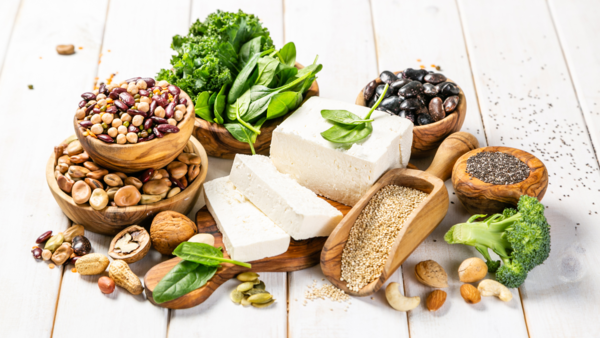How protein consumption impacts longevity
Dietary nutrients affect metabolic health and lifespan. Longevity and metabolic health are significantly impacted by a low-protein and high-carb diet. Plant protein, in addition to animal protein, is linked to a lower risk of chronic illnesses over an extended length of time and is especially beneficial as women age and lose physical capacity. According to studies, older persons who consume more protein do better physically and experience a slower rate of bone loss and muscle loss.Furthermore, healthy aging is described as not just having good mental health and no deficits in cognitive or physical function, but also being free from 11 major chronic diseases, including but not limited to cancer, Type 2 diabetes, stroke, kidney failure, and Parkinson’s disease.
In light of the fact that women tend to slow down in their middle and older years, consuming lentils, beans, nuts, and seeds, or plant proteins, may be a more efficient way to maintain them healthy at this time.

Research that brands plant protein better than animal protein
Recent research, published in the American Journal of Clinical Nutrition, suggests that plant protein is the best option for maintaining good physical and cognitive health in midlife and older age groups.
The logic behind the findings is that dietary components associated with plant protein sources, such as micronutrients, dietary fibers, and polyphenols, may have benefited all health indices. Plant meals are low in fat and high in fiber, which is beneficial to our microbiota, as well as many other protective phytonutrients. Phytoestrogens from plants play a protective role because the Harvard study focuses on middle-aged women and they imitate the actions of the hormone estrogen and may help replenish depleted levels in the body.
Another study that hails plant protein

Backing the findings, a recent Lancet study reveals that certain amino acids—like methionine or BCAAs—are linked, via a variety of pathways, to the control of metabolism and aging. Furthermore, research indicates that consuming a lot of animal protein—especially red meat, which has high methionine and BCAA content—may contribute to the development of age-related illnesses. On the other hand, poor protein consumption leading to malnutrition is detrimental to metabolic health and lifespan.
Plant protein from regular Indian meals
Dal, chickpea and rice, for instance, offer an excellent balance of amino acids. Although animal proteins have a higher protein content, they do not have any additional protective factors. Therefore, plant-based foods should make up a balanced diet, with animal proteins being an optional addition.
The takeaway
The study involved around 48,762 participants from the Nurses’ Health Studies. Because these studies are among the largest looking at the risk factors for major chronic diseases in women and have produced a wealth of information on Type 2 diabetes, cardiovascular disease, and cancer prevention, they can be trusted. However, the majority of White females in the study sample restricts the generalizability of the findings to other populations.
Key symptoms of lung cancer you must pay attention to

